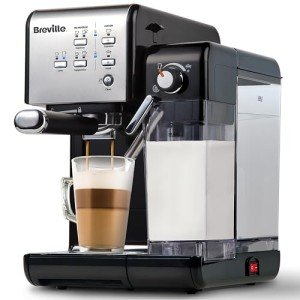How Home Espresso Machines Is A Secret Life Secret Life Of Home Espresso Machines
The Rise of Home Espresso Machines: A Comprehensive Guide
As coffee lovers continue to seek fresh and flavorful brews at home, the popularity of home espresso machines has risen in the last few years. No longer just the domain of cafes and coffeehouse, these machines empower people to craft barista-quality espresso drinks from the comfort of their kitchen areas. This short article will explore the various types of home espresso machines, their features, and factors to consider for selecting the right one. Additionally, it will supply a choice of FAQs to assist potential purchasers make notified choices.
Types of Home Espresso Machines
Home espresso machines can be categorized into numerous categories based upon their systems and user-friendliness. Each type has its special features, pros, and cons.
Type
Description
Pros
Cons
Manual Espresso Machines
Requires the user to by hand manage the developing procedure, involving methods like pulling a lever to produce pressure.
- Complete control over brewing procedure
- Compact style
- Requires ability and practice
- Time-consuming
Semi-Automatic Machines
Machine automates water flow and pressure, but the user still manages the dosing and period of the brewing procedure.
- Balance of automation and control
- Versatile
- Learning curve for refining techniques
Fully Automatic Machines
Automates the entire brewing process, from grinding to developing, often with programmable settings for customized drinks.
- Extremely user-friendly
- Quick and hassle-free
- Less control over the developing procedure
- Higher rate point
Capsule or Pod Machines
Uses pre-packaged espresso pills or pods to create coffee quickly and easily.
- Extremely easy to use
- Minimal cleanup
- Limited flavor range
- More pricey per cup than ground coffee
Super-Automatic Machines
Integrates functions of fully automatic machines with integrated grinders, enabling users to brew entire bean espresso and milk-based beverages with one touch.
- All-in-one convenience
- Ideal for milk-based beverages
- Often the most expensive
- Can be large
Features to Consider
When choosing a home espresso machine, possible buyers should think about the following functions to guarantee they choose a machine that fulfills their requirements:
Grinder Type:
- Built-in mills can provide fresher premises but might require more maintenance.
- Separate grinders permit for more customization of grind size.
Pressure:
- Look for machines that produce at least 9 bars of pressure, which is optimum for brewing espresso.
Water Temperature Control:
- Machines with adjustable temperature settings allow for much better extraction of taste from beans.
Milk Frothing Options:
- Consider whether you desire a manual steam wand for frothing or an automatic milk frother for benefit.
Alleviate of Cleaning:
- Machines with detachable parts and self-cleaning functions significantly decrease clean-up time.
Size and Design:
- Ensure the machine fits comfortably in your kitchen and aligns with your visual choices.
Budget:
- Set a budget before starting your search, as costs can vary significantly from affordable models to high-end machines.
Advantages of Home Espresso Machines
Owning a home espresso machine offers numerous benefits:
- Cost-Effective: Over time, brewing espresso at home can save coffee lovers cash compared to regular café check outs.
- Modification: Users can experiment with various beans, grind sizes, and brewing techniques to find their best cup.
- Convenience: The ability to brew espresso any time gets rid of the requirement to go out to a café, particularly useful throughout late nights or mornings.
- Quality assurance: With a home machine, individuals have complete control over the quality of active ingredients and developing processes.
Downsides of Home Espresso Machines
However, there are some drawbacks to consider:
- Initial Investment: High-quality espresso machines can be costly, requiring a significant in advance financial investment.
- Knowing Curve: Mastering the art of espresso brewing can take time and practice, which might be intimidating for beginners.
- Upkeep: Like any appliance, espresso machines require routine cleaning and maintenance to ensure optimum performance.
Frequently asked questions
1. What is the best type of home espresso machine for novices?
Response: For novices, a semi-automatic machine is frequently recommended as it offers a balance between control and automation, enabling you to discover the basics without frustrating complexity.
2. Just how much should I invest in a home espresso machine?
Answer: Entry-level machines can begin around ₤ 100 to ₤ 300, while higher-end models can range from ₤ 500 to over ₤ 2000. It's vital to set a budget based upon your expected usage and wanted functions.
3. Do read the article require a separate grinder?
Answer: While some espresso machines come with integrated mills, purchasing a separate grinder enables higher personalization and makes sure better quality premises.
4. How frequently should I clean my espresso machine?
Answer: Cleaning frequency can differ by machine type, but it's typically suggested to clean up the machine after each use and perform deep cleansings weekly or monthly, depending upon usage.
5. Can I make milk-based drinks with any espresso machine?
Answer: Not all machines include milk frothing abilities. If you take pleasure in drinks like lattes or coffees, look for a machine with a steam wand or automatic frother.
Home espresso machines are changing the method coffee connoisseurs enjoy their beloved brews. With various types and advanced features available in the market, there is something for everyone. Whether it's the pleasure of producing unique dishes or merely appreciating the best shot of espresso, purchasing a home espresso machine can enhance both the coffee-drinking experience and the lifestyle for coffee fans all over. As with Espresso Machines With Milk Frother , it is crucial to weigh the advantages against the potential downsides and pick a machine that perfectly fits both your lifestyle and preferences.
